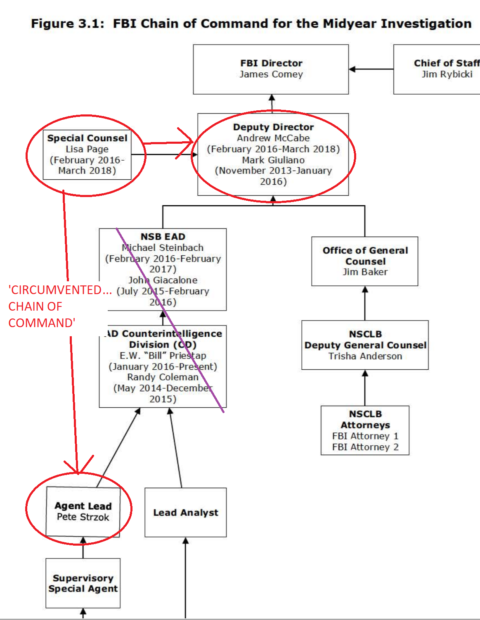This is interesting:
Beijing is set to announce a new fund of about 300 billion yuan ($47.4 billion) for the development of China’s semiconductor industry, The Wall Street Journal reported Friday, citing sources familiar with the matter.
The government-backed China Integrated Circuit Investment Fund is heading up the new investment vehicle, the report said. The fund was not available for comment outside of Beijing business hours.
The 300 billion yuan fund would go toward improving China’s ability to design and manufacture advanced microprocessors and graphic-processing units, among other initiatives, the Journal said, citing one source. The size of the fund and other details could change, another source told the newspaper.
Last week, Chen Yin, spokesman and chief engineer of China’s Ministry of Industry and Information Technology, said the fund welcomes foreign investment.
“The second phase of fundraising is underway, and we welcome foreign companies to participate in this round of financing,” Chen said at a news conference in Beijing, according to a report from state-run English-language newspaper China Daily.
Beijing is seeking to develop domestic technological innovation in areas such as robotics and semiconductors through an initiative called “Made in China 2025.” One of the U.S. trade delegation’s aims in talks with China this week was to ask Beijing to stop subsidies of that program. The visit ended Friday with little apparent progress in resolving a trade dispute between the two countries.
Should we worry? About that, no. Semiconductors are a very complex and expensive game to play. China is already in the game, and goodly portion of any semiconductor spending in China goes into the pockets of American and Japanese fab equipment suppliers like Applied Materials, LAM Research and Tokyo Electron. China has a native semiconductor equipment industry, but it’s hardly setting the world afire.
Tsinghua Unigroup is already in the process of building three fabs at a cost of $70 billion, focused on the memory business. Samsung is currently the top player in this space, followed by Hynix and Micron, and right now that space is pretty profitable.
In China the question is always how much of that investment is real, and how much is illusion. A lot of those “under construction” fabs never materialize, either unable to attract investors or having their funds magically siphoned off to some other enterprise. Also, memory chips are an extremely volatile business: In boom times (like now), they make money hand-over-fist. During busts (which are always around the corner), memory fabs barely break even, which is a big problem if you’re trying to earn back your $10 billion investment in a cutting edge 300mm fab.
A bigger concern for any foreign investor who helps build a fab in China to serve the Chinese manufacturing market is the blatant intellectual property theft, and China retaliating when a foreign manufacturer blows the whistle:
Three weeks ago, Micron and South Korean chipmakers Samsung and SK Hynix all reported that the Chinese government had launched antitrust probes into their firms, and accused them of setting artificially high prices for memory chips.
Yes, but: American companies and the U.S. government have long been suspicious about the link between China’s anti-monopoly policies and its industrial goals.
“They want access to the intellectual property. They need us to teach them how to do it. Once they have the industry, they want to push us out,” an industry source familiar with China’s investigation into Micron tells Axios.
The price hikes, the source says, are largely due to a boom in demand for memory chips in everything from smartphones to autonomous vehicles. China’s investigation is “a clear indication that they’re not ready to make [semiconductors] work,” says the source.
Micron’s fight to protect its IP is not new. Other U.S. firms have run up against the same Chinese antitrust policies or regulations and have been forced to strike deals with Beijing.
The New York Times’ Paul Mozur dove into the story a heist of Micron’s crown jewel — its chip design — in Taiwan, where the company keeps its trade secrets.
Qualcomm tangled with China: “To get back in Beijing’s good graces, the company agreed to lower its prices in China, promised to shift more of its high-end manufacturing to partners in China, and pledged to upgrade the country’s technology capabilities,” the New York Times’ David Barboza reports.
The same thing has happened to IBM and Apple and others.
“‘I’m not sure who’s fought China and won, just like I’m not sure who’s fought a casino and won in the long run,” says Bruce Mehlman, who was an assistant secretary of commerce for technology policy under the Bush administration and now lobbies for several tech companies.
Worth noting: Japan, South Korea and Taiwan all have thriving semiconductor industries, too. The difference is, these countries accept competition, whereas Beijing wants to give its national champions the advantage, Jimmy Goodrich, vice president of global policy at the Semiconductor Industry Association, says.
The bottom line, per the industry source: “We’re all dependent on China because everything is assembled there.”
This is a bigger problem, and will remain a bigger problem until American companies commit to building the infrastructure for a full-blown American flexible manufacturing supply chain to rival China’s.
All that said, IP theft only gets you so far in semiconductors. By the time you’ve stolen all the IP you need for a current generation chip, chances are good your rivals have already started to fab the next generation of product. And it’s not just the chip design you need to steal; you also need to steal the hundreds, if not thousands, of process step tweaks you need to properly fab 50 layer, 7nm node chips at acceptable uniformity across 300mm wafers. Screw up any one of those steps and your wafer yields crash and you’re making really large, expensive coasters.
Equally challenging for China is hiring qualified semiconductor engineers in China, people with the knowledge and experience to correct process steps to improve yields. There aren’t nearly enough being produced domestically, so China has recently started setting up satellite offices in America and Japan.
Tawain, on the other hand, has all the pieces to the puzzle (save, once again, semiconductor equipment manufacturing), with TSMC dominating the global foundry market. Foundries don’t design their own chips, they manufacture chips designed by others, and TSMC’s mastery of process control is probably second only to Intel’s. This is one reason defending Taiwan is in America’s national interest.
The Trump Administration should continue to push China on the intellectual property issue, and if the cost of doing business in China is giving away your intellectual property, foreign companies should refrain from manufacturing in China. (Alas, a resolution that’s easier said than done…)


